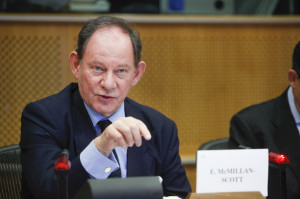The Meps will bring the theme of closing Strasbourg to the election campaign
The moves from Brussels cost 180 million euro a year and 19,000 tons of Co2 in the air
 The campaign to have a Single Seat European Parliament will be among the central themes of the next European elections foreseen for next year. This much is promised by the MEPs who adhere to the Single Seat campaign, a broad coalition, fighting to end the Plenary sessions in Strasbourg which require a move back and forth from Brussels for just 4 days a month, collectively cost 180 million euro a year, not to mention 19,000 tons of Co2 dispersed into the atmosphere because of the moves. Every month all 750 MEPs, their assistants and a large number of public officials must work for one week in the French city; there are dozens of truck that make the 409 kilometres trip that separate the 2 cities to transfer hundreds of trunks of personal effects necessary for the functioning of their offices.
The campaign to have a Single Seat European Parliament will be among the central themes of the next European elections foreseen for next year. This much is promised by the MEPs who adhere to the Single Seat campaign, a broad coalition, fighting to end the Plenary sessions in Strasbourg which require a move back and forth from Brussels for just 4 days a month, collectively cost 180 million euro a year, not to mention 19,000 tons of Co2 dispersed into the atmosphere because of the moves. Every month all 750 MEPs, their assistants and a large number of public officials must work for one week in the French city; there are dozens of truck that make the 409 kilometres trip that separate the 2 cities to transfer hundreds of trunks of personal effects necessary for the functioning of their offices.
“With the Europe 2020 Strategy the EU established the objective of reducing emissions by 20% and then we are not doing our own part personally” declared the Irish Sean Kelly (Epp). “I am Irish – reminded Kerry – strict austerity measures were imposed on my country like others while the EU wastes money in this way: it is absurd.” Still thanks to this campaign, initiated by the Alliance of Liberals and Democrats of Europe (Alde), and following enlarged its members, going for broke, the Plenary in its vote on the 2013 budget approved with 77% yes and amendment that asks to limit work in Brussels, ending the double seat, a unique situation in the world. Unfortunately the issue, absurd as it may be, is established by the Treaties, in order to change it requires a unanimous vote by the European Council, and France is not prepared to surrender. “We must work to modify it, trusting in the Parliament the possibility to choose where to meet, otherwise we will never be able to win this battle,” affirmed Daniel Cohn-Bendit (Greens).
At the European Council of December 1992 in Edinburgh, the Heads of State and Government decided that the monthly plenary sessions should be held in Strasbourg, the ordinary work in Brussels, and that different support offices should be situated in Luxembourg. David Harley, already Vice-Secretary General of the European Parliament reminded us how that decision was taken: “In 1992 when the number of seats for each nation was established, 99 were assigned to Germany and 87 to France and it was the first time that a difference between the two countries was sanctioned. France did not sign that agreement until obtaining the ratification of the rule to hold the plenary sessions in Strasbourg.”

And since then they have not wanted to do an about face with the official motivation that the city, contested by the two nations in so many wars, represents the reconciliation between Paris and Berlin. “The symbolism is important, and we have nothing against Strasbourg, but we cannot waste all these resources just in the name of symbolism. We could hold a conference there every year to remember the value of Peace, but this cannot carry on” added Ulrike Lunacek (ALDE). But beyond the symbolism, the MEPs calculated that the economic value of the presence of Parliament in Strasbourg runs around 20 million euro a year. And thus, to fulfill the French’s request (whether they are symbolic or merely more economic), the parliamentarians hypothesize that they could transfer another institution in the Alsatian city. The only problem is that doing this there will probably be another nation that won’t want to lose prestige (and other earnings) derived from its presence in their own territory.
For this Edward McMillan Scott (ALDE), co-president of the Single Seat campaign, deems it necessary that this theme become key in the electoral campaign for the 2014 elections: “That will be the opportunity to test public opinion on the argument. Thanks only to the pressure of the citizens can we change the mentality of the political leaders.”
Alfonso Bianchi










![La presidente della Regione Sardegna, Alessandra Todde [foto: Andrea di Biagio/imagoeconomica]](https://www.eunews.it/wp-content/uploads/2025/04/Imagoeconomica_2131124-120x86.jpg)
